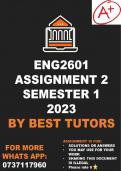, Title: An Expanded Analysis of Text B: Its Purpose, Diction, and Style
In the realm of educational discourses, language policy often emerges as a subject of
considerable debate. A case in point is the situation in South Africa, a multilingual society
struggling to navigate the delicate balance between mother tongue instruction and English
proficiency. Text B, titled "Policy options to crack the mother tongue versus English riddle
in South African schools," penned by Nompumelelo Mohohlwane, presents a nuanced
exposition of this critical issue. The analysis below expands on the text's purpose, diction,
and style, elucidating how these elements combine to deliver a compelling narrative.
Purpose
Firstly, the text functions as an informative piece, offering readers a comprehensive
overview of the language policy landscape in South Africa's education sector. Mohohlwane
documents the country's educational language dynamics, emphasizing how mother tongue
instruction, while recognized theoretically, often faces practical obstacles.
Yet the text goes beyond merely informing. It serves an analytical purpose by dissecting
the inconsistencies between policy and practice, underlining the socio-cultural and
economic implications of the language shift. The author draws attention to the paradoxical
preference for English, despite it being the mother tongue of less than 10% of the
population.
Additionally, the text becomes a platform for advocacy, presenting policy recommendations
to navigate this linguistic quandary. Each proposed option—maintaining the status quo,
delaying the transition to English, and strengthening tertiary education in African
languages—is evaluated, including its potential benefits and challenges.
Diction
Mohohlwane's diction is meticulously calibrated to the text's academic nature. Technical
terminologies such as "mother tongue instruction," "curriculum statements," and
"Language in Education Policy" are used, contributing to a formal and authoritative tone.
These terms underscore the author's command over the subject, enhancing the text's
credibility.
Yet, the author balances this technical jargon with simpler language to ensure broader
understanding. Complex ideas are broken down and explained in more straightforward
terms, enhancing the text's accessibility. For example, phrases like "transitioning to English
from Grade 4" convey abstract policy ideas in a reader-friendly manner.




